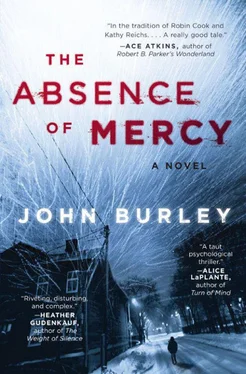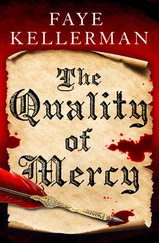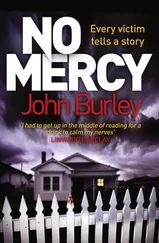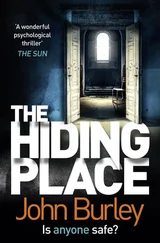Silence filled the kitchen. In the adjoining rooms, nearly oblivious to their presence, teams of forensic crime scene examiners scurried about like beetles, fastidiously foraging for their esoteric treasures. Ben could hear them rattling about, conversing quietly with one another. He realized, of course, that he was behaving ridiculously. Carl Schroeder was simply doing his job. They all were. The chief and his team of investigators had followed the evidence to where they thought it led. They had made an egregious mistake, of course—that much was clear—and they would soon discover just that. In the meantime, was there really any cause for Ben to… ( doubt )… to respond in this manner? It made sense to remain calm and to cooperate with them as much as possible. Didn’t it?
And what if they’re right? a voice spoke up inside of his head. What if they’re right, Ben? Have you even bothered to consider that?
Of course he had. He’d considered the idea for a fraction of a second before tossing it properly out through the front door where it belonged.
Is that right?
Yes, that was right. They could lay out all of the circumstantial evidence they had in their possession—make whatever wild accusations they wanted. They would not make him doubt the innocence of his own son. They would not .
Because you know your boy. You know what he’s capable of. And what he isn’t.
Damn right, he knew his boy. After almost seventeen years, he ought to, by God. If his son were involved in anything remotely close to what they were suggesting, Ben would know about it. Wouldn’t he?
Sure, the voice said. How could you not? After all, you’ve been through so much with him—with both of them.
Yes, he had. Susan, too.
Like the stint Joel spent in the hospital after falling over the rail of the upstairs balcony. Times like that.
Of course. Times like that.
Right over the rail, he went. An accident.
Yes. Such a terrible accident had a way of bringing a family togeth—
Because it couldn’t have happened any other way—right, Ben? The boy couldn’t have… been pushed… or thrown, for example.
Thrown? That was ridiculous.
Because you were right there. You saw it all, and you would’ve known, wouldn’t you? You would’ve known if something like that had happened.
But he hadn’t seen it. Not the entire skirmish. All he’d witnessed as he ascended the staircase was Joel’s body falling to the floor below.
And that’s it, right? Nothing else. Nothing you might’ve caught in your peripheral vision and chosen not to see?
No, nothing.
Because you know your boy. You know what he’s capable of.
Yes. He did. Didn’t he?
He looked up at them. They were watching him, all three of them, waiting for him to deny it again. From the look in their eyes— Even Sam? Yes, even his friend Sam —he could tell that the question was already settled in each of their minds, and that the only fool in this room… was him. Yet he couldn’t bring himself to accept what they were alleging. None of it made any sense to him. None of it at all.
“Call, Susan,” he said finally. “They’re visiting her parents in Arizona right now. Call my wife, and she’ll tell you just how crazy this all is. Call her. You’ll see.” And he gave them the number.
The desert sun beat down on the metallic hide of the automobile as the car tracked its course across the barren landscape. In the rearview mirror, another vehicle could be seen cresting the horizon. She found it hard to resist the urge to accelerate. Instead, she allowed the cruise control to do its job, keeping them at six miles per hour over the posted speed limit. She couldn’t afford to get pulled over. Not now. And yet, time was short, wasn’t it? How much time did they actually have? She didn’t know— couldn’t know for sure. Not knowing made her want to place her right foot on the accelerator and floor the motherfucker, and again she resisted the urge. If she panicked, it would all be over.
Another thought occurred to her, a saner thought: Stop. Stop now, either here or at the next exit (wherever that might be in this veritable wasteland of sand and sporadic scrub brush). Stop now and put an end to it before a horrible situation became much, much worse. In the backseat, two children slept—one hardly qualifying as a child any longer. If she took the next exit, found a gas station or a convenience store—anyplace with a landline (there’d been zero bars on her cell phone for the past forty minutes) and maybe another human being—she could make a phone call and just stay put. Allow it to end. She could allow herself to choose the only reasonable course of action.
Which was diametrically opposed to what she was doing now. She could try to convince herself that she was somehow protecting them, but… was she, really? She had known for a long time, she supposed, that this would end badly. She had known ten years ago, when he was six, when he would simply sit for long periods of time—hours, sometimes—watching them, his small face devoid of expression. It wasn’t normal; she didn’t need to be a child psychiatrist to know that. The thought had occurred to her that perhaps he was experiencing some type of seizure— absence seizures, they called them. But his eyes, intelligent and aware, suggested differently. To be absolutely certain, she’d taken him to a pediatric neurologist. “Why does he do that?” she’d asked, but after a half-dozen tests and a few thousand dollars in medical bills the specialist had deemed her son healthy.
“Nothing wrong that I can see,” he’d tried to reassure her. “He’s an intelligent, curious child. These episodes”—he’d shrugged, getting up from his seat and placing one chubby hand on the exam room’s doorknob, apparently eager to move on to the next patient—“are just part of his development. He’ll grow out of them. Something else will take their place.”
And Thomas did seem to grow out of them, too—for a while, anyway. She had taken comfort in the fact that his general demeanor, as well as his interactions with others, had seemed to normalize over the next two years. And while his affect was never what she would consider completely normal, at least he had seemed more willing to engage in the world around him. It was around that time, however, that she’d discovered the wood rat.
Ben had installed a small shed in the back of their yard the year before. He’d needed just enough storage space for the lawn mower, a few sawhorses, some planting pots, the circular saw, and a couple of shovels and assorted hand tools. It wasn’t a big structure, but it had a roof, four walls, and a sliding aluminum door with a latch that her husband usually kept locked.
She’d been working out back in the garden one late spring afternoon when she’d noticed that the door to the shed was standing slightly ajar. Normally, she wouldn’t have thought twice about it; but they’d been having some trouble with rodents getting into the trash lately, and the sight of that partially open door had brought with it the thought of what an absolute mess she’d have on her hands if the rats got in there and decided to chew through the four bags of topsoil she’d purchased last week. She went to the shed with the intention of simply closing that door and, as an added measure of caution, perhaps to pause for a quick inspection of the interior to ensure that no critters had taken up residence inside. When she arrived at the door, she threw a quick look inside and then started to slide the door closed on its plastic track. Then she paused, for an unpleasant stench seemed to waft through the structure’s open doorway. Oh, God. Something has found its way in there, she thought, and has probably died in the process . She wasn’t particularly enthusiastic about going in after it, either. But Ben—the usual cleaner-upper of such disgusting, odiferous delights—was out of town for the weekend and wouldn’t be back until Tuesday. God only knew how nasty that smell was going to get between now and then.
Читать дальше
Конец ознакомительного отрывка
Купить книгу












